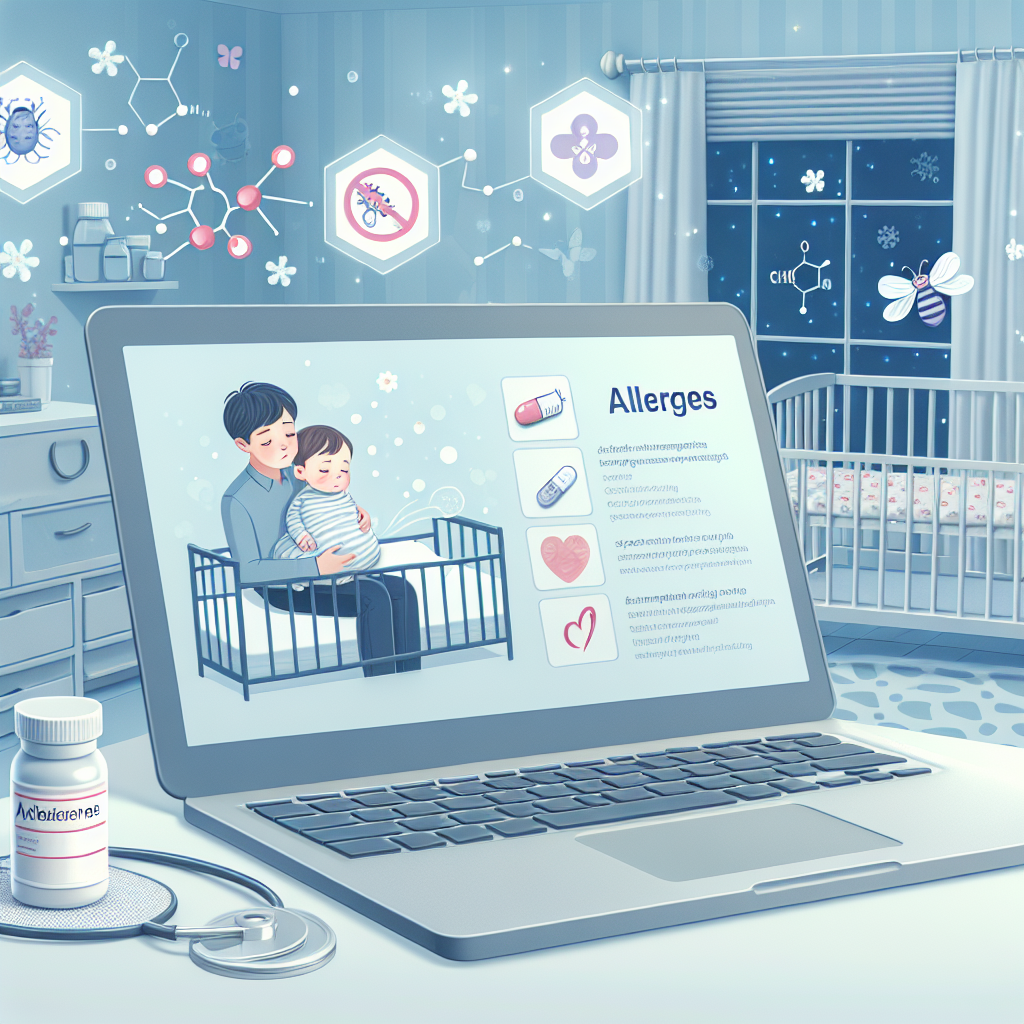Treating Allergies in Babies: Effective Tips and Solutions
Allergies in babies can be a challenge for parents, but with the right information and approach, they can be managed effectively. In this article, we will explore the essential steps and methods for detecting and treating allergies in little ones.
Identifying Allergy Symptoms in Babies
The first step in treating allergies in babies is recognizing the symptoms. These can range from breathing problems, rashes, colic, diarrhea, to tiredness or irritability. It is important for parents to note any changes in their child's behavior or health status and consult a pediatrician for a thorough evaluation.
Professional Consultation and Diagnosis of Allergies
After noticing suspicious symptoms, the next step is to consult a specialist. The doctor will be able to perform various tests, such as skin tests or blood tests, to determine the specifics of the allergies. Accurate diagnosis is crucial to establishing an appropriate treatment plan.
Allergen Prevention and Avoidance Strategies
Once the allergen is identified, it is essential to implement preventive measures and to avoid contact with it. This may mean changes in the baby's diet, in the products used for its care or in the environment. Keeping a clean house free of dust and mites can significantly help in preventing allergy symptoms.
Food Allergy and Child Diet
Food allergies are among the most common in babies. Removing the suspect food from the child's diet and replacing it with healthy alternatives is a crucial step. Sometimes it may be necessary to consult a nutritionist to ensure that the baby is getting all the nutrients it needs for healthy development.
Medication and Treatments for Allergies
In cases where avoiding allergens is not enough, the doctor may recommend medication to control the symptoms. Baby antihistamines or other prescription medications should be used with caution and under medical supervision.
Natural Approach and Home Remedies
Many families opt for natural remedies and home treatment methods. This may include taking calm baths with oats, using essential oils or probiotics. Although these methods can be effective, it is important to always discuss their safety and suitability for each baby with the doctor.
Monitoring and Adjusting the Treatment Plan
Treating allergies involves careful monitoring and possible adjustment of the treatment plan as the baby grows and develops. Observing reactions to different allergens and the effects of treatments can provide valuable information for improving long-term allergy management.
Emotional Support and Family Encouragement
While navigating baby allergies, emotional support for the child and the entire family is fundamental. Allergies can be stressful, and encouraging and understanding your child's emotional needs can help them adjust better and manage the situation effectively.
Conclusion: Towards a Healthy and Allergy-Free Future
We conclude this guide by recalling the importance of early recognition of allergy symptoms, medical consultation for a correct diagnosis and the adoption of an effective treatment plan. With patience and care, baby allergies can be controlled, ensuring a healthy start in life for our little ones.
Parents are invited to explore other resources and subscribe to our newsletter for more tips and solutions on healthy child rearing. The journey into the world of parenthood can be full of challenges, but together, we can ensure the best for the health and happiness of our children.














































































































































